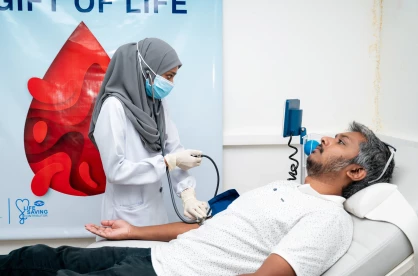After three years of meticulous review and amendments, the Parliament of Maldives has officially passed the Food Safety Bill into law. This significant legislation, initially introduced during former President Ibrahim Mohamed Solih's administration in 2021, marks a major step forward in ensuring the health and safety of food consumed within the country.
The bill, the longest-studied legislation of the 19th Parliament, underwent thorough examination by the parliament's Committee of Social Affairs. However, with the latest development, there is hope for the food safety bill being properly implemented in the Maldives, following ratification from the president. Not only will this be a major step up from current food safety practices, but the bill will ensure that real measures are taken against vendors and sellers who are not following set protocols.
With the new food safety bill, there are standards and regulations highlighted for food production, import as well as export of food, preparation, packaging, labelling, storage, as well as transportation of food within the Maldives. This approach to every single stage of food production would hopefully be a holistic approach when it comes to safeguarding public health by ensuring that all food items meet stringent safety criteria throughout their lifecycle. As there are proper standards and regulations, the food safety bill, if implemented properly can also hold outlets accountable for the way business is conducted and how food is handled in restaurants as well as delivery places.
Some of the key aspects of the new food and safety bill that will make it easier to hold businesses and vendors accountable would be the establishment of a proper legal framework which can formulate policies and standards that will guarantee the safety and hygiene of food in production, storage as well as handling at points of sale. Following the implementation of the bill, any parties that are involved in food manufacturing and selling would be required to register and comply with specified requirements. This registration process is designed to maintain high standards of cleanliness and safety across all stages of food handling.
Another key factor that would come into play once the bill is put into place would be relevant authorities being tasked with implementing the proper measures. With this, authorities can search and seize food items for testing purposes, keeping up to date on whether the food being distributed passes the checklist on the food safety bill.
To reinforce compliance, the committee introduced amendments at the review stage that increased the fines for violations. Depending on the severity of the infraction, fines can range from MVR 10,000 to MVR 75,000.
This milestone legislation is expected to significantly enhance the food safety framework in the Maldives, ensuring that both imported and locally produced food meets rigorous health and safety standards, thus protecting consumers and boosting confidence in the food supply chain.






